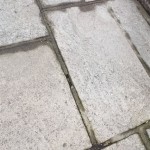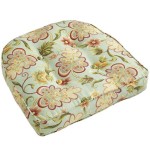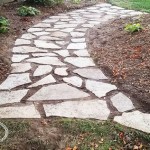Backyard Patio Stones and Pavers: Essential Considerations
Transforming your backyard into an outdoor haven requires careful planning and execution. Patio stones and pavers play a crucial role in creating a cohesive and inviting outdoor space. Whether you prefer the rustic charm of natural stone or the sleek elegance of porcelain pavers, choosing the right materials and considering essential aspects are paramount for a successful outcome.
1. Stone or Pavers: Material Selection
The choice between stone and pavers depends on your desired aesthetic, budget, and maintenance requirements. Natural stone, such as flagstone, granite, or limestone, offers timeless beauty and durability. However, it can be more expensive and requires specialized installation and sealing. Pavers, on the other hand, are artificial stones made from materials like concrete, ceramic, or porcelain. They come in various colors, shapes, and textures, providing flexibility in design and reduced maintenance.
2. Color and Texture
The color and texture of your patio stones or pavers significantly impact the overall ambiance of your backyard. Light-colored materials reflect heat, making them suitable for sunny areas. Dark-colored materials absorb heat, creating a cozy atmosphere for evening gatherings. Smooth-textured stones provide a clean and formal look, while rough-textured pavers add rustic charm and provide better traction.
3. Drainage and Slope
Proper drainage is essential to prevent water from pooling on your patio. Choose materials that are porous or have built-in drainage systems. Consider the slope of your backyard and ensure the patio is graded to allow water to flow away from buildings and structures. Inadequate drainage can lead to structural damage and safety hazards.
4. Perimeter Edging
Edging around your patio defines its borders and prevents stone movement. Choose materials that are durable and complement your patio design. Common edging options include stone, concrete, or metal pavers. They also enhance safety by preventing tripping hazards and creating a clean and finished look.
5. Subbase Preparation
A solid and well-compacted subbase is the foundation of any successful patio installation. The type of subbase material depends on the weight and size of the stones or pavers. Typically, a layer of gravel, sand, or crushed concrete is used to create a stable base. Proper subbase preparation ensures the longevity and stability of your patio.
6. Joint Filler
Joints between stones or pavers require a filler material to prevent weed growth, stabilize the stones, and enhance the overall appearance. Common joint fillers include sand, polymeric sand, or crushed stone. The choice depends on your specific material and desired outcome. Polymeric sand, for example, hardens over time and provides superior weed control.
7. Maintenance and Longevity
Regular maintenance is essential to extend the lifespan of your patio. Sweep or blow off debris regularly to prevent stains and prolong the color of the stones or pavers. Pressure washing can be used for deeper cleaning occasionally. Natural stone may require sealing to protect it from weathering and stains.

10 Tips And Tricks For Paver Patios

Planning For A Paver Patio Ideas And Inspiration Town Country Living

Types Of Pavers The Home Depot

Paver Patio Ideas 5 Inspirational Designs For Comfortable Outdoor Living Leave Your Mark Llc

Top 60 Best Paver Patio Ideas Backyard Dreamscape Designs Outdoor Pavers

Modern Pavers For Patios Backyards Design Ideas

40 Patio Pavers Ideas Design For Paved Patios

96 Paver Patio Ideas To Enhance Your Outdoor Living In 2024 Pavers Design Layout

Paver Patio Ideas S Belgard Pavers

Types Of Pavers The Home Depot








